![]()
![]()
![]()
Use LEFT and RIGHT arrow keys to navigate between flashcards;
Use UP and DOWN arrow keys to flip the card;
H to show hint;
A reads text to speech;
10 Cards in this Set
- Front
- Back
- 3rd side (hint)
|
1. popular sovereignty: - the people who give rules -we govern ourselves |
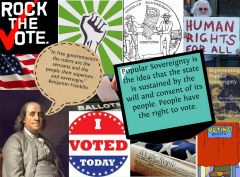
popular sovereignty |
The concept was widely popularized by Stephen A. Douglas in 1854.
|
|
|
2. Republicanism: -wanted people to have a voice but not have opinion to get in the way of smart decisions . -vote for our political representatives . |
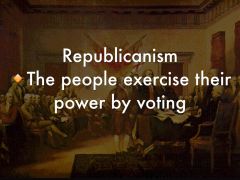
Republicanism
|
the United States of America which revolted against the British monarchy and became a federal congressional republic in the 1770 s .
|
|
|
3. federalism: - national and state government share powers |
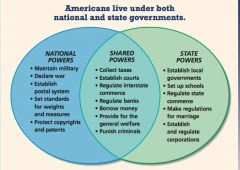
federalism |
Grant program are a major factor in the federal system. Since 1862 the national government has given grants for "land grant" colleges, highways, welfare
|
|
|
4. separation of powers -legislative = makes laws -executive =enforces the laws -Judaical=interprets the laws |
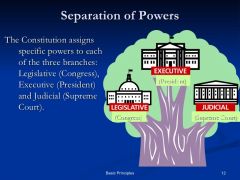
separation of powers
|
"The modern idea of separation of powers is to be found in one of the most important eighteenth-century works on political science, the Baron DE Montesquieu's The Spirit of the Laws(1748), which states that "There can be no liberty where the legislative and executive powers are united in the same person, or body of magistrates …"
|
|
|
5. checks and balances -each branch has some control over others for example: only congress can pass laws |
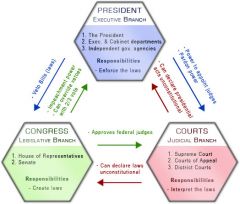
checks and balances
|
The process of how laws are made is a good example of checks and balances in action.
|
|
|
6. limited government: -everyone must follow the law -certain groups cant twist it to benefit themselves. |
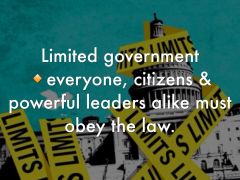
limited government
|
Limited government exists where some effective limits restrict governmental power.
|
|
|
7. individual rights: - first amendments - bill of rights -guarantee personal liberates and privileges |
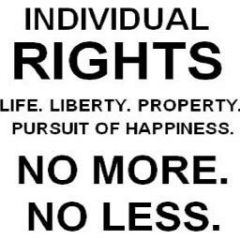
individual rights
|
The concept of individual rights is the foundation of Objectivist politics.
|
|
|
8. The preamble: Introduction to the constitution. |
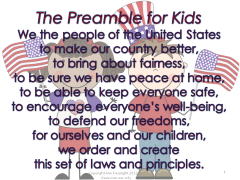
The preamble
|
the Preamble is the reason why the thirteen original colonies separated from Great Britain to become an independent nation.
|
|
|
9. declaration of independence: The Declaration of Independence is defined as the formal statement written by Thomas Jefferson declaring the freedom of the thirteen American colonies from Great Britain. |
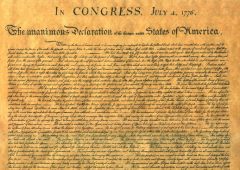
declaration of independence
|
On June 11, 1776 the Continental Congress appointed five leaders, called the Committee of Five, to write a document explaining why they were declaring their independence. The five members wereBenjamin Franklin, John Adams, Robert Livingston, Roger Sherman, and Thomas Jefferson. The members decided that Thomas Jefferson should write the first draft.
|
|
|
10. The constitution:a body of fundamental principles or established precedents according to which a state or other organization is acknowledged to be governed. |
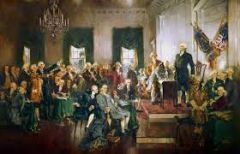
The constitution
|
The U.S. Constitution was written in the same Pennsylvania State House where the Declaration of Independence was signed and where George Washington received his commission as Commander of the Continental Army. ...
|

